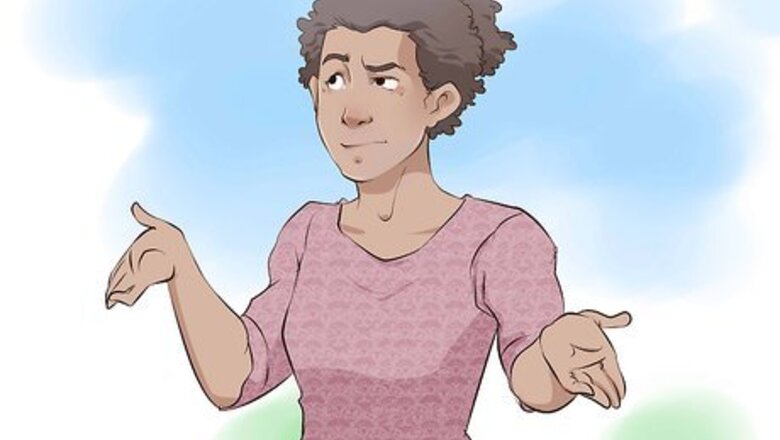
views
Handling the Pain of Homophobia
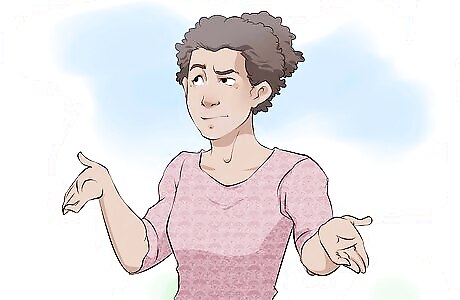
Don't take it personally. It can be easy to feel shame, anger, or self-hatred when you encounter homophobia. You might hate yourself for being who you are, or wish that you were heterosexual so that, perhaps then, you would have an easier time of it. It's understandable to turn these feelings inward, but you shouldn't. Homophobia is a societal problem, and it can only be solved with information, self-awareness, and acceptance.
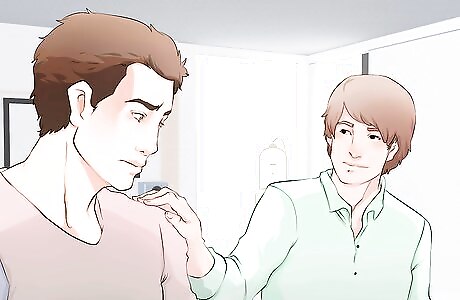
Find support. Although it may be difficult to know that everyone from religious groups and conservative politics do not support who you are, this pain can be eased by having a few people who continuously show you love and support. Identify those precious people in your life - classmates, coworkers, close friends, or relatives - who are there for you, or who may be going through a similar ordeal. Spend as much time with these people as possible. It can be very helpful to join a local support group for gays, lesbians, and bisexuals. Participating in such groups can help you feel less alone and learn practical solutions for dealing with homophobia.
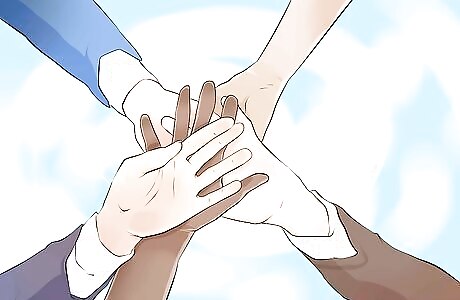
Join an advocacy group. Taking action to spread awareness about homophobia may help you feel worthwhile and cope with facing discrimination in your own life. Search for advocacy groups to become a member in your geographic area and make a difference today.
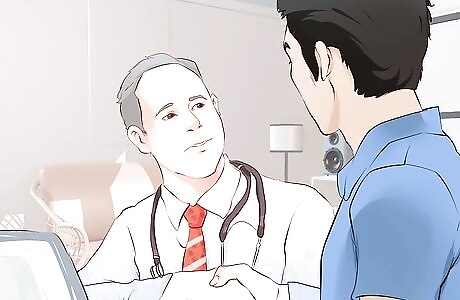
See a mental health counselor. If you have recently come out as gay, or are dealing with bullying or discrimination at school or work, it can be immensely helpful to talk to a therapist or counselor. This professional can help you process this confusing time in your life and maybe even help you develop strategies for reacting to homophobia. A family therapist may be able to help you address homophobic feelings of close relatives. When scheduling a consultation with a therapist or a counselor, ask them if they have experience working with LGBTQ+ folks, if this population presents any difficulties for them, and what their general approach is to working with LGBTQ+ folks.
Responding to Homophobia

Keep a cool head. The worst thing you can do when faced with homophobia is respond negatively. Cursing or becoming defensive may only confirm negative stereotypes. By keeping your head, you are able to positively respond to the situation, and maybe even make the person feel guilty, or second-guess themselves, for insulting you. Of course, this is much easier said than done when someone is attacking your personal life. If a person makes a homophobic remark, first take a deep breath - in through your nose and out through your mouth. This can help you remain calm after the insult. After calming yourself, decide how to react. Depending on the person and the severity of the remark, you might choose to ignore the insult (and steer clear of the person) or respond confidently with information.
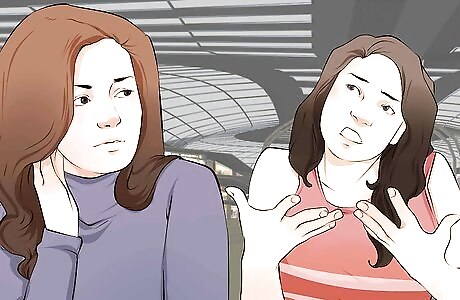
React when people object to gay people due to religious reasons. When people are raised, or currently are, religious, their strong perspectives on gay people are probably grounded in their beliefs. Different religions have varying takes on sexuality and LGBT+ people. Many Christianity/Islamic sects have one of the most prominent positions against same-sex partnerships, saying that being gay is unnatural, immoral, and detrimental to the family. If you feel it's necessary to respond to someone calling gay love a sin, you might refer them to various alternative readings of the Bible. Furthermore, even some Christian leaders strive to take a position of full acceptance and welcome gay people into their inclusive congregations. If you are interested in helping change a friend or family member's feelings about gays, it may be helpful for them to speak with a more accepting Christian (or other religious) leader and explain your dilemma. Or, you might stray from the sexual aspect of gay people and explain the difficulty of ignoring your love for another person simply because they are of the same gender. Ask the offender how they might feel if they were told who to love. Remind this person of their own love relationships. What if they happened to fall in love with another person and wanted to share that joy with the world, but learned that the relationship was looked down upon or forbidden? When people consider how homophobia permits bias against another’s most basic nature – love – it may be easier to let go of these strong negative feelings.
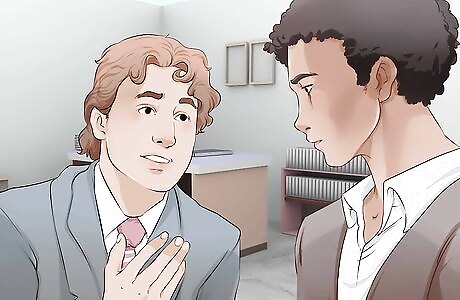
Explain that being gay is not a phase. Heterosexual acquaintances may minimize your "coming out" by describing it as a passing phase or something you might grow out of in time. In fact, the idea that sexual orientation is not innate, but picked up in one's environment is a huge misconception that feeds heterosexism. In response to such a statement, feel free to deny this idea by telling your personal story, if you feel up to it. In many cases, people come to embrace their identity later in life after fighting it or pretending to be heterosexual for many years. Such an experience is hardly one that represents a passing phase. It might even be helpful to dispel rumors that people can be "cured" of being gay or simply change who they like. Respond to such comments by reversing the question and asking, "Do you think you can be cured of heterosexuality? Can you change who you like?" The answer: no.
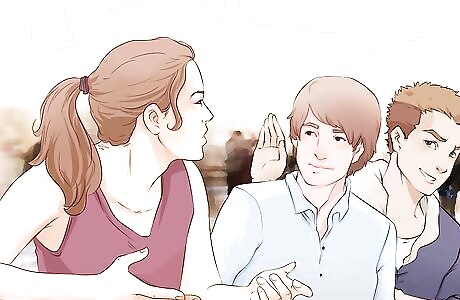
Intervene when people are stigmatizing gays due to peer pressure. In some instances, people may not start with strong negative feelings about gay people, but develop them after witnessing social stigma at school or work. When a person's social group is against something, it can be hard to be “for” it without facing ridicule or exclusion. For example, if a few of the popular kids at school don’t talk to Peter because he “acts” gay, then other kids may inadvertently stop talking to him, too. You can counteract homophobia due to peer pressure by challenging your peers to gain a clear understanding of their own values and beliefs and by selecting friends who are accepting and positive influences.
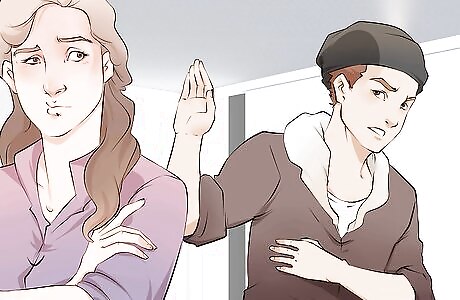
Consider whether this person is in denial about their own sexuality. Research has revealed that some of the most outspoken homophobes are those who have hidden desires toward the same sex. Additional data shows that children raised in households in which their parents were openly against gay love have more intense feelings of homophobia. If you encounter someone who has particularly hateful opinions about same-sex partnerships or gay people, consider the possibility that they may be attracted to members of the same sex and is using homophobia to hide these feelings. Strive for empathy towards such as person, knowing that grappling with such feelings, especially when others are strongly against it, can be frightening.
Helping Others Learn about Gay People
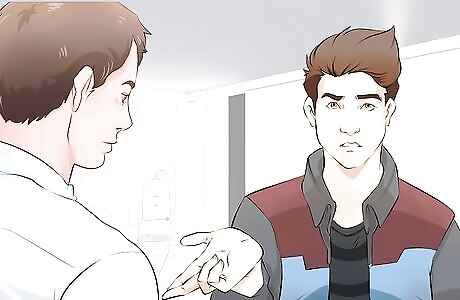
Educate that there is no clear cause for being gay. There are several reigning positions on the origins of being gay, of which two factions are most prominent: genetic/biological roots vs. psychological/environmental roots. Still, as of today, scientists cannot clearly distinguish what causes one to be gay.
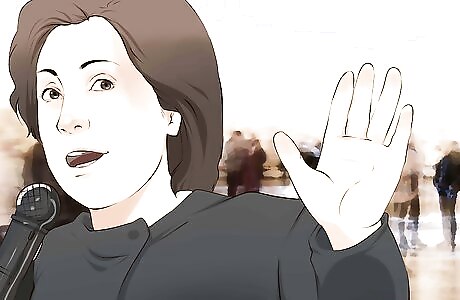
Spread the word about the role of discrimination and prejudice. Being gay is not a disease, and, therefore, there is no “cure”. Many people wrongly assume that curing gay people of their sexual urges can make them straight. In fact, it is not a cure that is needed, but greater social awareness and acceptance for gay people. Find some insightful statistics or gay discrimination videos and share them with your homophobic friend. For many decades, gay and lesbian couples have faced strong opposition from society, public policy, and religion. Gay and bisexual individuals are the target of verbal harassment, abuse, and even violence, in some cases. What’s more, the association of being gay with having HIV/AIDS has further stigmatized gay, lesbian, and bisexuals, and resulted in people being afraid of being tested or seeking treatment for these diseases.

Share articles, blogs, and essays to learn more. Further educating your friends about LGBT issues can help them to come to understand gays, lesbians, and bisexuals, and reduce their negative feelings towards these individuals. Visit reputable websites or blogs that give provide a more thorough anti-homophobic understanding of sexuality.
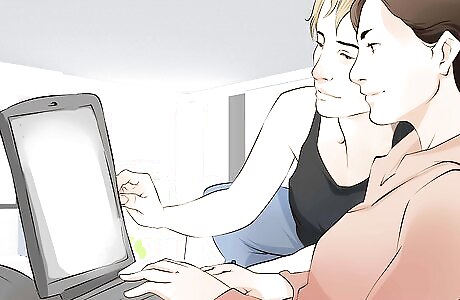
Watch TV shows and movies together. Popular culture can be a great vehicle to becoming more accepting of gay people and reducing others' fear or discomfort. Sit down with a friend or loved one and watch a TV show that depicts characters who are openly gay. After the show goes off, ask your friend if they see any similarities between themselves and these characters? Aren’t they “normal” people with normal goals and desires? These characters can make them cry, laugh, or squeal with excitement just like any of the heterosexual characters, right? Check out these links to find some series and films about gay people.
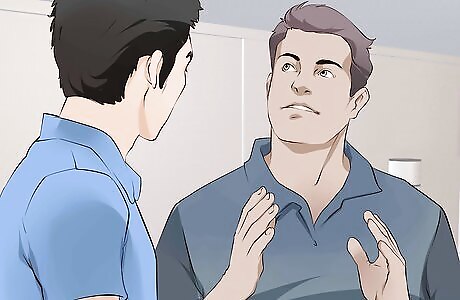
Tell your peers to think about all the ways they are different. Every person has a trait or characteristic that could be deemed “different” by someone else in society. Maybe someone is shy. Or, they are an ethnic minority, or does not practice a religion. In some ways, these traits may cause anyone to feel isolated or singled-out. When people are able to recognize that all humans are special or unique, they are less likely to chastise others for who they are. Check out these inspiring quotes on diversity.
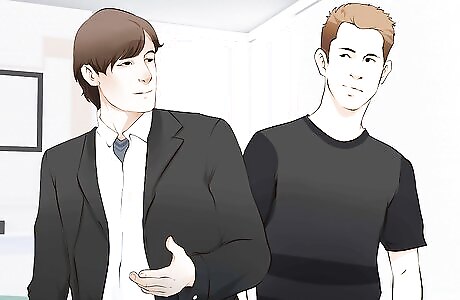
Challenge homophobes to get to know a gay person. Once a person has become more educated about sexuality and same-sex attraction and has shifted their perspective, it might be helpful to actually make the effort to know someone who is openly gay. Research of sexual prejudice has shown us that discrimination and stigmatization from heterosexuals to gay people decreases when straight people make an effort to engage with gays.















Comments
0 comment